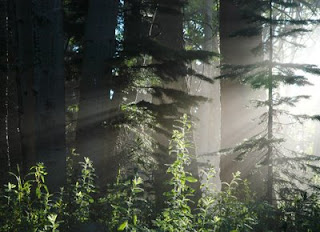
I watch as rain—hard rain—beats the puddles outside into froth. Wind periodically flashes water against the window and surfs across the puddles. It feels Pacific-Northwest but decidedly not maritime. The end of May at 9,000 feet at the head of the draw.
Henrietta reads weather on the radio; precipitation for days but snow accumulation expected to be less than an inch. It could be worse: I remember one Memorial Day with 18 inches of fresh on the yellow daffodils. Weather-wise folks predict one thing for sure is that the weather will change. Yeah? So change it.
Actually the weather is just fine, demonstrating again how it is foolish to write about weather. I decry cold and damp because so soon after winter, I’d like sunshine in bluebird skies. Typical monsoon moisture arrived early this summer; I wonder if we should anticipate late summer drought…better to just be here now.
There is any number of reasons not to write about weather. Certainly its relevance in the greater scheme of things is suspect; farmers and climatologists pay attention while the rest of us enjoy and endure. Although we affect climate, we are at the mercy of local weather. Inter-relationships between the two are complex.
During May year before last, weather was sunny and warm encouraging spring beauties and pasque flowers. Last year, May was cold and snowy, accumulating additional inches on an already overwhelming snowpack. We thought winter might never end. This year’s rain is at least falling on mostly snow-free ground; a mosaic of green contrasts with winter’s monochrome. This isn’t so bad.
Whether we prefer rain or shine, since we can’t do anything about it, it’s not worth getting exercised over. Yet we attend weather forecasts like religion. During winter, I devour information from as many sources as I can find. I pride myself on having discovered the resources and developed the vocabulary to understand them.
“Since we can’t do anything about it,” asked a friend, “why the hell are you writing about it?”
“Politics is boring,” I answered. “It’s the same old stuff.” The economy is in the toilet, one bunch wants torture, and another bunch doesn’t. Wars rage, politicians point fingers and give lie to anything that can be called post-partisanship. What is left to say?
Weather is a relatively safe subject unless I unwisely talk about climate change and global warming. I have one friend who steadfastly insists there is no such thing as climate change. I liken him to someone who some years ago, refused to accept the spherical nature of the Earth. And he doesn’t want to hear any Chicken Little carbon footprint bullshit from me.
It is futile to proselytize someone who doesn’t want to be convinced. Science tells me our climate is changing and my human actions are accelerating it. But one person’s science is another’s smoke and mirrors. I wonder when my friend last walked where a glacier used to be…probably never.
Climate is one of those macro things we will ignore until too late, and then we will suffer. Politics might someday affect the climate, but it probably can never change the weather. I will be already recycled when polar bears are extinct, when deserts claim our continents and oceans inundate our shorelines.
Weather on the other hand, provides common ground for complaint or approbation. We can debate whether climate is changing, whether or not we cause it, whether we can adapt or fix it. But we will agree that it’s raining or sunny, or whether we’d like it to stop snowing and melt. We can disagree about climate, but not so much about weather.
Moreover, in the ski and tourism business, we qualify as farmers of snow and sunny summer climatologists. Rainy days limit enthusiasts who want to get out in it, but rain serves to melt stuff out and make plants grow. Since the snowpack melted so quickly from under its winter red dusting, rain washes and greens it up.
My weather sources tell me it might rain for a while. But in my experience, only fools and those paid big bucks attempt to predict the weather. Moreover, in a few weeks, the days start getting shorter; that is totally predictable. In the meantime, duck the showers, dodge any lightning that might threaten and try to ignore the persistent wind. Rest assured: The weather will change.




